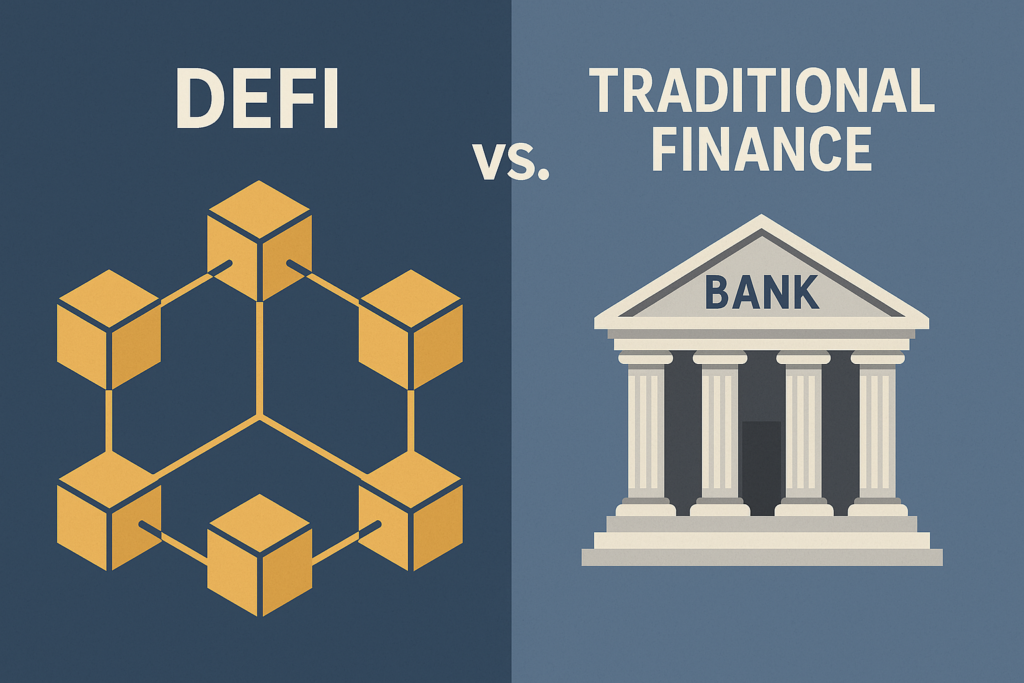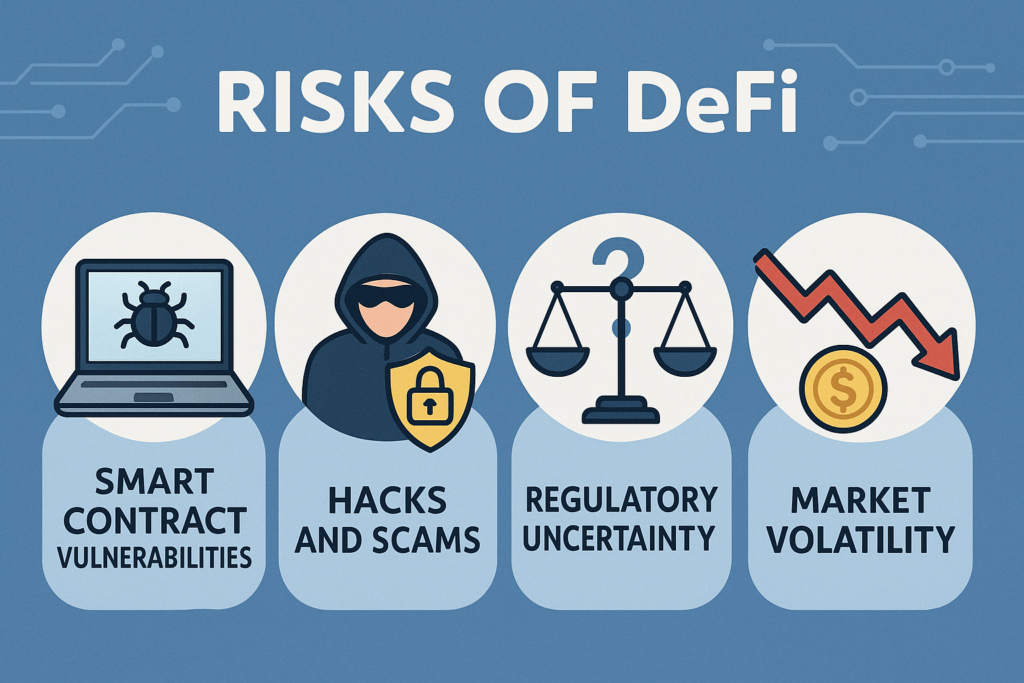Decentralized Finance, commonly known as DeFi, refers to financial services and products built on blockchain technology. Unlike traditional financial institutions such as banks and brokerage firms, DeFi operates without centralized intermediaries, using blockchain networks—primarily Ethereum—to facilitate peer-to-peer financial transactions.
Why is DeFi Important?
DeFi has become a significant disruptor in the financial industry, offering greater accessibility, transparency, and control to users. Traditional finance often involves intermediaries who control assets and require trust. In contrast, DeFi is trustless, meaning transactions are governed by smart contracts—automated, self-executing code—rather than third-party oversight.

Core Principles of DeFi
Decentralization: No single entity controls transactions, removing dependence on banks.
Transparency: Blockchain technology publicly records every transaction, promoting transparency.
Accessibility: Anyone with an internet connection and crypto wallet can participate.
Autonomy: Users control their funds entirely, without needing permission or approval from financial institutions.
Key Components of DeFi
Smart Contracts
Smart contracts are at the heart of DeFi, providing automation and reliability. These contracts automatically execute transactions when predetermined conditions are met, eliminating the need for intermediaries.
Decentralized Exchanges (DEX)
These exchanges allow users to trade cryptocurrencies directly with one another without intermediaries. Popular DEXs include Uniswap and SushiSwap.
Lending and Borrowing Platforms
Platforms like Aave and Compound allow users to lend or borrow cryptocurrencies, earning interest or accessing liquidity without traditional credit checks.
Stablecoins
Stablecoins, like USDC or DAI, are cryptocurrencies pegged to stable assets such as the U.S. dollar, minimizing volatility common in crypto markets.
Advantages of DeFi
Financial Inclusion: Allows unbanked and underbanked individuals access to financial services.
Lower Costs: Transactions often incur lower fees compared to traditional finance.
Increased Speed: Settlements are typically faster due to automation and the absence of intermediary steps.
Risks and Considerations

While DeFi provides many benefits, it also carries risks:
Smart Contract Vulnerabilities: Bugs or security flaws can lead to loss of funds.
Hacks and Scams – Nascent technologies are breeding grounds for tricksters and scam artists
- Regulatory Uncertainty: Ongoing developments in regulation can affect DeFi operations.
- Market Volatility: Cryptocurrencies remain inherently volatile, posing financial risk.
Getting Started with DeFi
To begin exploring DeFi:
Set Up a Crypto Wallet: Options include MetaMask, Ledger, or Trust Wallet.
Acquire Cryptocurrency: Buy crypto from exchanges like Coinbase, Binance, or Kraken.
Connect to DeFi Platforms: Use your wallet to connect directly to platforms like Uniswap, Aave, or Compound.

